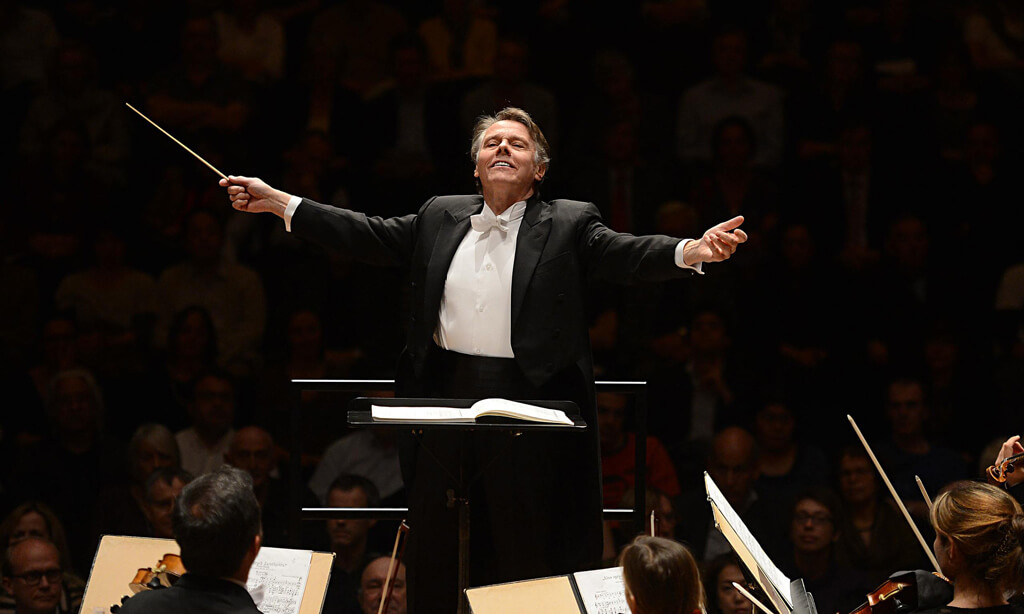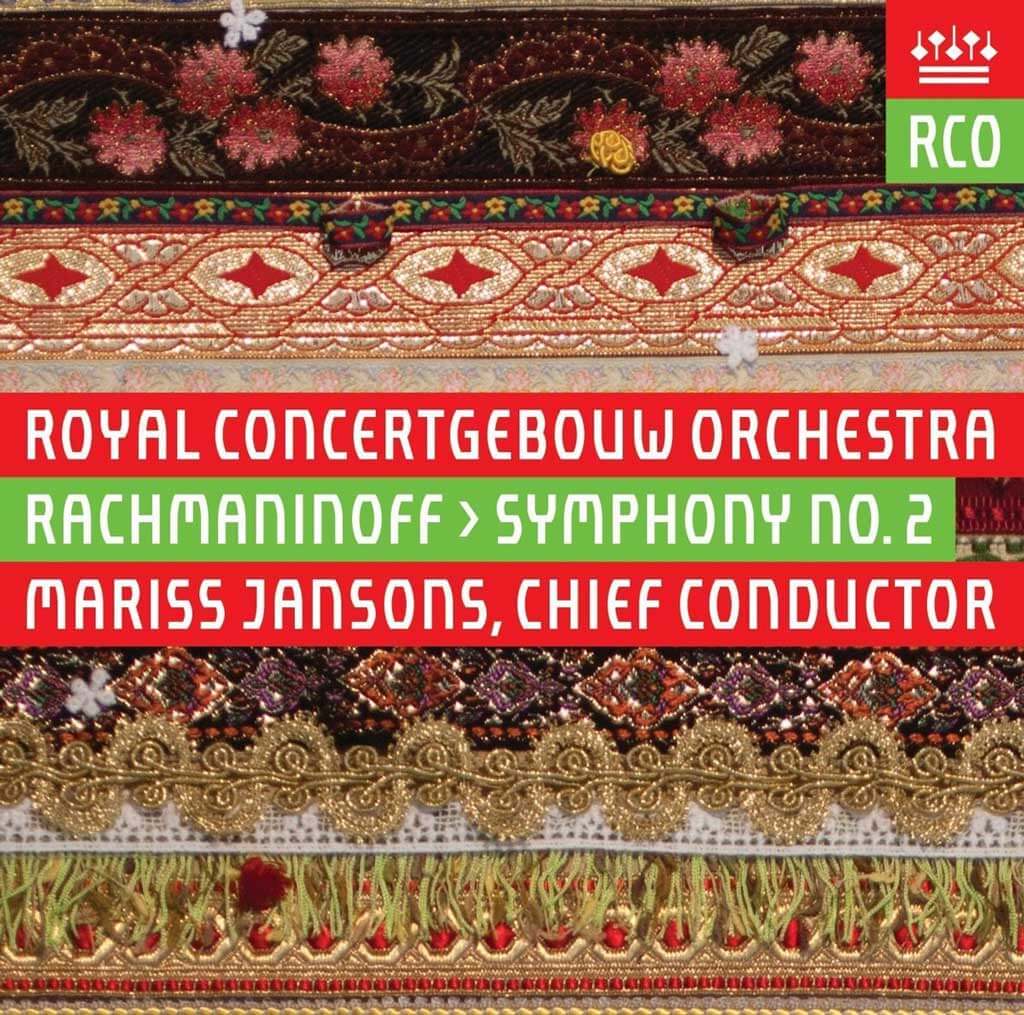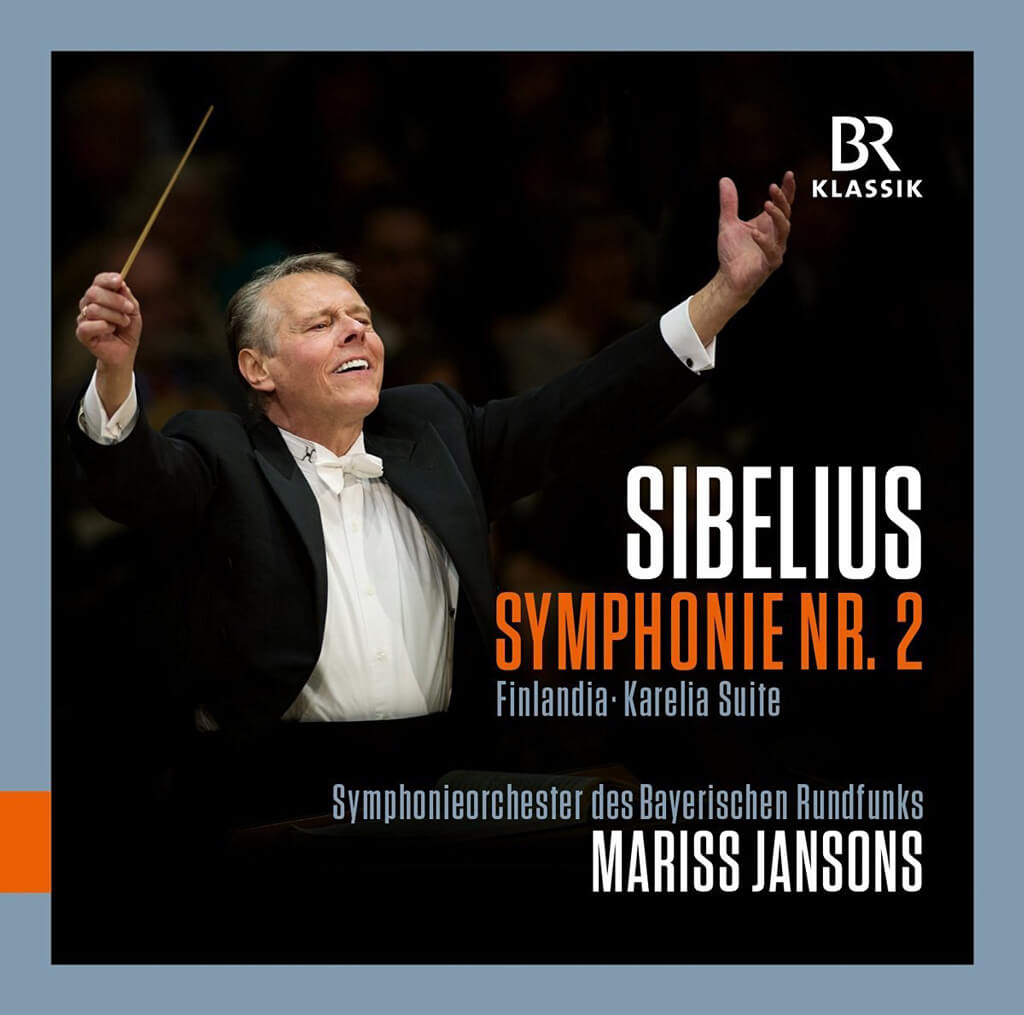
Several years ago, Latvian conductor Mariss Jansons had a very difficult decision to make; as he neared his 70th birthday, with a history of serious heart problems behind him and perhaps ahead of him as well, he needed to cut back on his conducting commitments. The problem was that, at the time, Jansons was music director of two of Europe’s finest orchestras: the Royal Concertgebouw Orchestra (RCO) in Amsterdam and the Bavarian Radio Symphony Orchestra (BRSO) in Munich. He would have to give one of them up. But which one? For reasons that were not entirely obvious — perhaps not even to himself — Jansons opted for the BRSO.
Given these two new recordings conducted by Jansons, one with the RCO and the other with the BRSO, we can venture to judge for ourselves whether or not he made the right decision.

The Royal Concertgebouw Orchestra plays in the legendary Concertgebouw, one of the world’s finest concerts halls, while the Bavarian Radio Symphony plays in the Herkulessaal der Residenz, acoustically a much inferior space. I suspect that Jansons would agree that there is no contest as far as the home halls for each of these orchestras is concerned; even on a recording, the quality of the Concertgebouw is unmistakable. Not surprisingly, Jansons has said that one of his top priorities in Munich is to get the BRSO a new hall.
The symphonies on this disc have been in Jansons’ repertoire for a very long time, and he has recorded each twice before — the Rachmaninoff, first with the Philharmonia Orchestra (CHAN 8520) and then with the St. Petersburg Philharmonic (EMI CDC5 55140). He recorded a complete cycle of the Sibelius symphonies with the Oslo Philharmonic (EMI CDC7 54804), and then recorded Symphony No. 2 again, this time with the RCO in 2006.
Though indubitably masterpieces, neither symphony is beyond criticism; Rachmaninoff’s Symphony No. 2, for example, has been subject to extensive cuts by conductors who found it too long and too repetitious. Some of these cuts were even sanctioned by the composer. That said, in our time the symphony is most often played without cuts. Jansons, very much his own man in such matters, has made several cuts, especially in the last movement.
Jansons has also made some changes in the orchestration. In the score, the last note of the first movement, an emphatic sff, is written for basses and cellos. Jansons obviously felt the note was weak as it stood and added timpani. At rehearsal number 87, in the last movement, he added a cymbal crash. And there are many other changes.
It is risky for any conductor to make ‘improvements’ in a composer’s score, especially when the composer is not around to have any say in the matter. It is especially unwise to tamper with pieces that are generally acknowledged to be masterpieces, and works by composers who are among the greatest who ever lived. That said, conductor Leopold Stokowski was famous for doing it, or “infamous” depending on your point of view, and he was not the only one. The practice, no doubt, will continue.
‘Improvements’ aside, Jansons and the RCO offer a reading of Rachmaninoff’s Symphony No. 2 that is thoroughly convincing. Jansons does not hesitate to speed up or slow down according to his interpretation of the score and generally speaking, he gets deep inside the spirit of the music. The clarinet solo in the slow movement could hardly be more eloquently played, and the orchestral performance throughout is glorious. On balance, however, if asked to choose between the two, I would opt for a 1982 recording of Rachmaninoff’s Symphony No. 2 by the same orchestra, under conductor Vladimir Ashkenazy (Decca 448116).

The Sibelius CD, with the BRSO, also features world-class playing. Here, Jansons is competing against himself, namely, his 2006 recording with the RCO. The interpretation is pretty much the same from one recording to the other, with close attention to detail and plenty of excitement. If, however, you want a more spontaneously emotional rendition of Sibelius’ Second Symphony, I would recommend either Barbirolli (Halle Orchestra; Warner 8470624), Beecham (BBC Symphony; EMI CDM763399) or Bernstein (Vienna Philharmonic; C major DVD 732404). And if you want to hear how overwhelmingly powerful the final pages of the score can really be in performance, try the Karajan version (Berlin Philharmonic; Warner 633619).
So did Jansons make the right decision in opting for Munich over Amsterdam? On the evidence of these two new recordings, there is, to my mind, no clear-cut answer. Jansons gets excellent results from both of them orchestras.
For more Record Keeping, see here.
#LUDWIGVAN
Want more updates on Toronto-centric classical music news and review before anyone else finds out? Get our exclusive newsletter here and follow us on Facebook for all the latest.
- SCRUTINY | TSO Lets Berlioz Do The Talking In Season Opener - September 21, 2018
- RECORD KEEPING | Even Yannick Nézet-Séguin Can’t Make Us Love Mozart’s La Clemenza di Tito - September 6, 2018
- RECORD KEEPING | Giovanna d’Arco With Anna Netrebko Explains Why The Best Operas Survive - August 30, 2018



